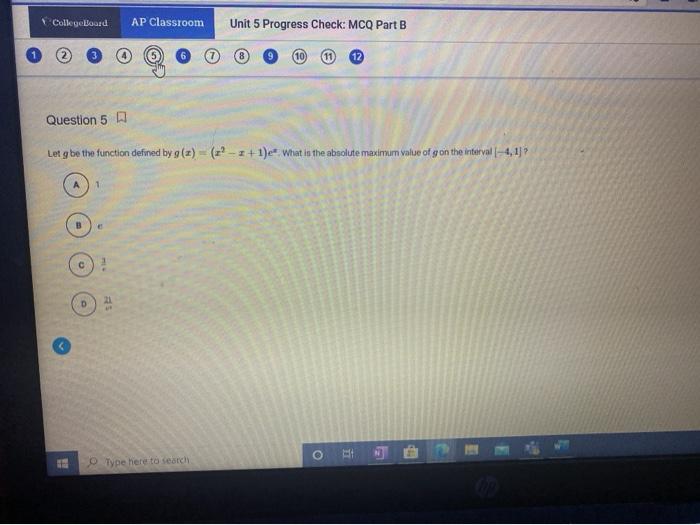Embark on a journey through Unit 1 Progress Check MCQ Part C, where we delve into the intricacies of key concepts, problem-solving techniques, and critical thinking skills. This comprehensive guide will equip you with the knowledge and strategies to excel in this assessment.
As we navigate through the different sections of Part C, we will uncover the significance of each concept and its real-world applications. We will also explore effective problem-solving strategies and provide tips for developing critical thinking skills essential for success in MCQ exams.
Unit 1 Progress Check MCQ Part C: Concepts and Definitions
Part C of the progress check assesses students’ understanding of key concepts covered in the unit. These concepts form the foundation for the unit’s content and provide a framework for understanding the material.
Some of the key concepts tested in Part C include:
- The concept of a function
- The domain and range of a function
- The graph of a function
- The inverse of a function
- The composition of functions
Understanding these concepts is essential for success in the unit and for further study in mathematics.
Unit 1 Progress Check MCQ Part C: Problem-Solving

Part C of the progress check also includes problem-solving questions. These questions require students to apply the concepts they have learned to solve real-world problems.
The types of problem-solving questions included in Part C vary depending on the unit, but they may include:
- Word problems
- Algebraic problems
- Geometric problems
- Data analysis problems
To solve these types of questions effectively, students should:
- Read the problem carefully and identify the key information.
- Draw a diagram or create a table to help visualize the problem.
- Apply the appropriate mathematical concepts and formulas.
- Check their work to ensure that their solution is correct.
Unit 1 Progress Check MCQ Part C: Applications
The concepts and skills tested in Part C of the progress check have a wide range of real-world applications. These applications can be found in fields such as:
- Science
- Engineering
- Business
- Finance
- Medicine
For example, the concept of a function can be used to model the relationship between the input and output of a system. This can be used to design everything from simple machines to complex computer systems.
Unit 1 Progress Check MCQ Part C: Critical Thinking

Part C of the progress check also assesses students’ critical thinking skills. These skills are essential for success in college and beyond.
Critical thinking skills include the ability to:
- Analyze information
- Evaluate arguments
- Draw conclusions
- Solve problems
To develop critical thinking skills, students should:
- Be open-minded and willing to consider different perspectives.
- Ask questions and challenge assumptions.
- Look for evidence to support their claims.
- Be willing to change their minds when presented with new information.
Unit 1 Progress Check MCQ Part C: Exam Preparation

To prepare for Part C of the progress check, students should:
- Review the key concepts covered in the unit.
- Practice solving problems similar to those that will be on the exam.
- Get a good night’s sleep before the exam.
- Arrive at the exam on time and be prepared to work hard.
By following these tips, students can improve their chances of success on Part C of the progress check.
Commonly Asked Questions
What is the significance of Part C in the Unit 1 Progress Check?
Part C assesses your understanding of key concepts, problem-solving abilities, and critical thinking skills, which are crucial for success in the unit.
How can I effectively prepare for Part C of the exam?
Create a study plan, review the concepts covered, practice problem-solving techniques, and develop your critical thinking skills through practice questions.
What types of problem-solving questions can I expect in Part C?
Part C typically includes questions that require you to apply concepts, analyze data, and solve problems using logical reasoning.